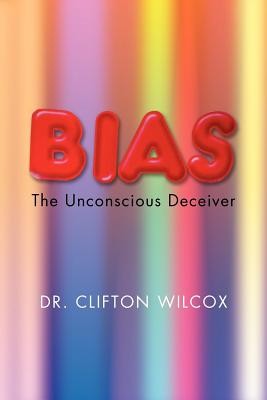
- We will send in 10–14 business days.
- Author: Clifton W Wilcox
- Publisher: Xlibris
- ISBN-10: 1465342613
- ISBN-13: 9781465342614
- Format: 15.2 x 22.9 x 1.6 cm, softcover
- Language: English
- SAVE -10% with code: EXTRA
Reviews
Description
"Bias arises from various processes that are sometimes difficult to distinguish. These processes include information-processing shortcuts, motivational factors, and social influence. In groups, individuals have a tendency to evaluate their own membership group (the ingroup) more favorably than a non-membership group (the outgroup). This differential group evaluation is known as ingroup bias.
Research on ingroup bias has a long history in social psychology. Early researchers believed that ingroup bias was largely a function of motivational processes, whereas later researchers believed that ingroup bias was largely a function of cognitive processes. Currently, researchers are more predominantly focused on the cognitive explanations, and affective processes are increasingly being used to explain ingroup bias.
This book is grounded in the structure of intergroup relations, out group relations, sex relations, gender, and violence. This book will provide an integrative theoretical approach (a) identifies underlying dimensions of intergroup behavior active/passive, facilitative/harmful), and their roots in (b) dimensions of stereotypes (competent/incompetent, warm/cold) and (c) corresponding prejudiced emotions (admiration, contempt, envy, pity); and (d) identifies ambivalent clusters of stereotypes, prejudiced emotions, and discriminatory behaviors. In the end, we will see that bias perceptions play an important role in the escalation of conflict by leading individuals to behave in a more conflictual manner through aggression and competition, rather than cooperative and peaceful."
EXTRA 10 % discount with code: EXTRA
The promotion ends in 11d.19:43:56
The discount code is valid when purchasing from 10 €. Discounts do not stack.
- Author: Clifton W Wilcox
- Publisher: Xlibris
- ISBN-10: 1465342613
- ISBN-13: 9781465342614
- Format: 15.2 x 22.9 x 1.6 cm, softcover
- Language: English English
"Bias arises from various processes that are sometimes difficult to distinguish. These processes include information-processing shortcuts, motivational factors, and social influence. In groups, individuals have a tendency to evaluate their own membership group (the ingroup) more favorably than a non-membership group (the outgroup). This differential group evaluation is known as ingroup bias.
Research on ingroup bias has a long history in social psychology. Early researchers believed that ingroup bias was largely a function of motivational processes, whereas later researchers believed that ingroup bias was largely a function of cognitive processes. Currently, researchers are more predominantly focused on the cognitive explanations, and affective processes are increasingly being used to explain ingroup bias.
This book is grounded in the structure of intergroup relations, out group relations, sex relations, gender, and violence. This book will provide an integrative theoretical approach (a) identifies underlying dimensions of intergroup behavior active/passive, facilitative/harmful), and their roots in (b) dimensions of stereotypes (competent/incompetent, warm/cold) and (c) corresponding prejudiced emotions (admiration, contempt, envy, pity); and (d) identifies ambivalent clusters of stereotypes, prejudiced emotions, and discriminatory behaviors. In the end, we will see that bias perceptions play an important role in the escalation of conflict by leading individuals to behave in a more conflictual manner through aggression and competition, rather than cooperative and peaceful."


Reviews